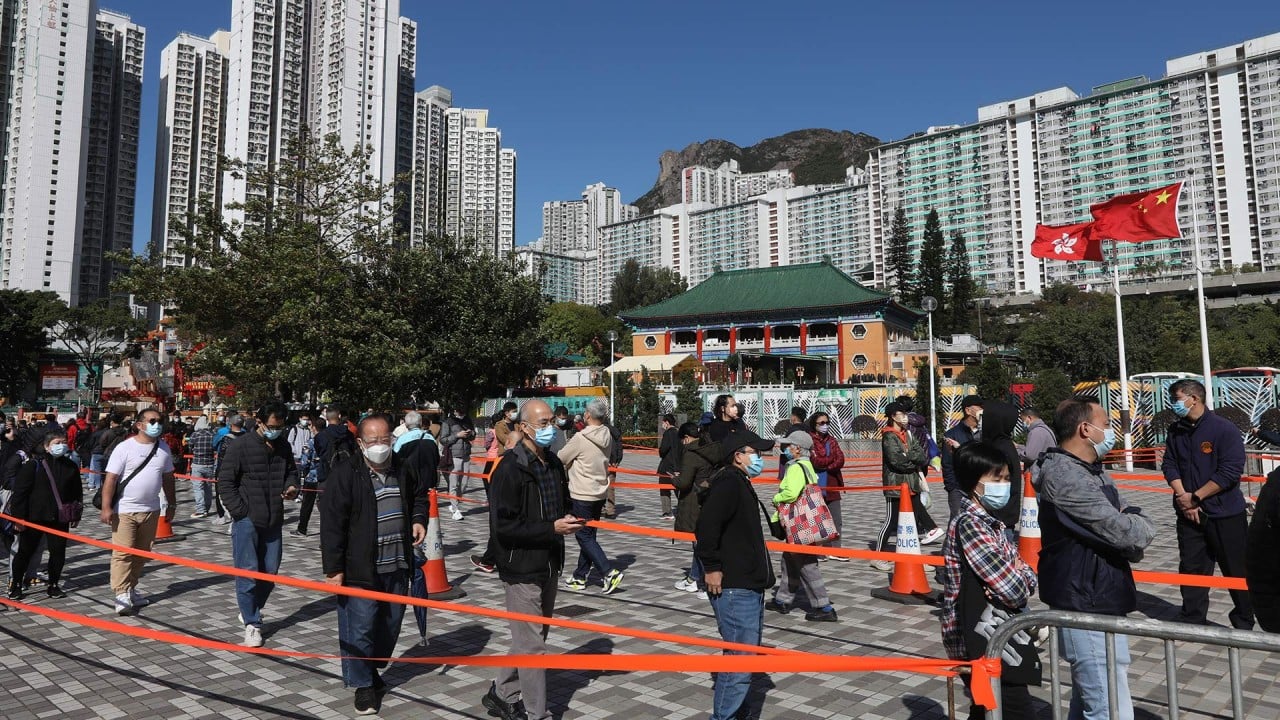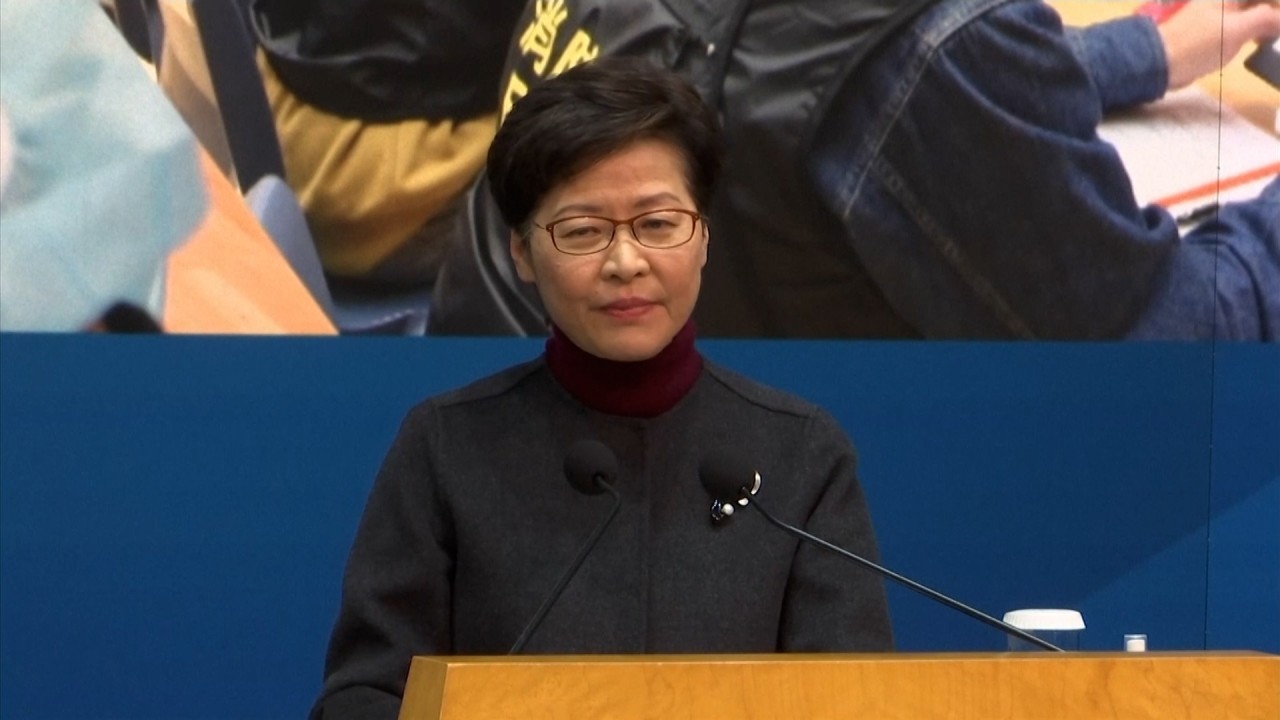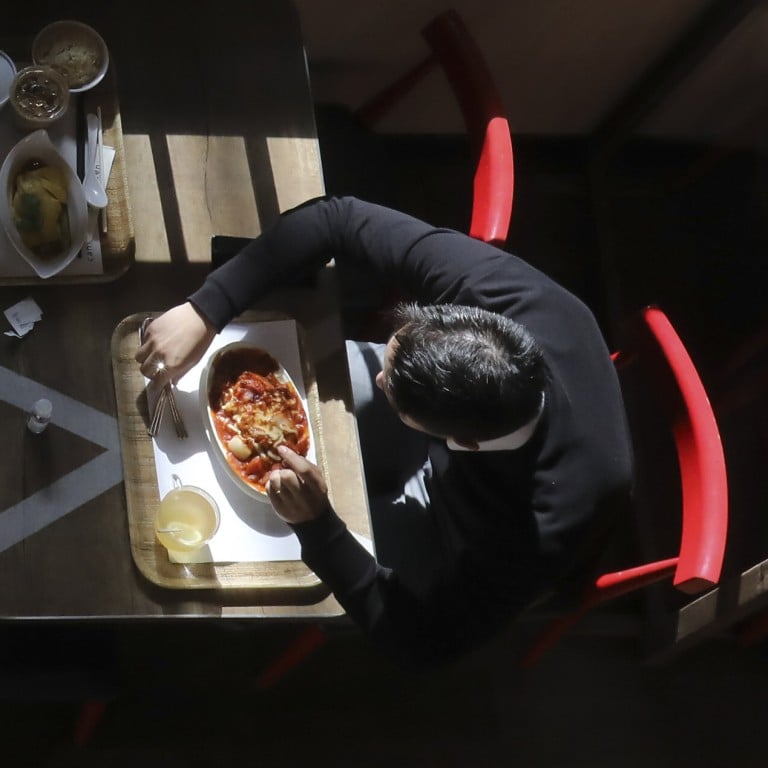
Coronavirus: Hong Kong to be put under toughest social-distancing rules yet, with more venue closures, ban on gatherings of over 2 households
- City reports another record-breaking surge of Covid-19 infections as Chief Executive Carrie Lam announces the ramped-up restrictions
- Cap on public gatherings lowered to only two people at a time and ‘vaccine pass’ scheme expanded to cover shopping centres, supermarkets and hair salons
Key points:
– Cap on public gatherings tightened to two people but families with more than two members exempted, gatherings of more than two households banned even in private places
– Vaccine pass extended to shopping centres, department stores, supermarkets, wet markets, religious places and salons, the latter two to be closed until February 24
– Dining at ‘Type D’ restaurants cut to four people per table, types B and C limited to two per table
– Fine for ignoring mandatory testing doubled to HK$10,000 (US$1,300)
– Anti-epidemic fund to get another HK$26 billion (US$3.3 billion), with Legco approval as early as next Tuesday, those temporarily unemployed will be covered
Hong Kong will be placed under the toughest social-distancing rules to date starting from Thursday, with an unprecedented ban on private gatherings of more than two households and further closures of public venues including houses of worship.
The city reported another record-breaking surge of Covid-19 infections on Tuesday as Chief Executive Carrie Lam Cheng Yuet-ngor announced the ramped-up restrictions, which also include lowering the cap on public gatherings to only two people at a time and expanding the “vaccine pass” scheme to cover shopping centres, supermarkets and hair salons.
The public-gathering cap, however, will not apply to families of more than two members.
In a reflection of the worsening situation, health authorities confirmed 625 new infections on Tuesday, breaking yet another daily record. Around 500 preliminary-positive cases were also reported.
“I hope we all realise that the time has come for Hong Kong to take some tough measures,” Lam said. “And every measure that we now introduce has been undertaken in other jurisdictions, including some places and countries which are very proud of their human rights, their democracy and so on. They are doing all these sorts of things because this is about life.”
The city’s leader stressed the need to put public health over personal freedom at a time of crisis, but added: “We will not make it so any individual in Hong Kong simply cannot live. There will be exemptions, there will be compassionate treatment for this and that.”
Stick with ‘dynamic zero-Covid’ policy or face disaster, Hong Kong told
Explaining the restrictions on families socialising with each other in private, Permanent Secretary for Health Thomas Chan Chung-ching later said carers would be exempted, and government officers would not “proactively” enforce the law with door-to-door checks.
However, if Covid-19 patients were later found to have breached such rules during contact-tracing investigations, they could be prosecuted, he added.
More than half of the hundreds of new infections confirmed on Tuesday involved people who had joined large, multi-household gatherings.
“Preliminary analysis has shown that at least 19 large clusters were recorded, with each one involving at least 10 people,” said Dr Chuang Shuk-kwan, head of the communicable disease branch of the Centre for Health Protection. The largest cluster involved 47 patients.
Chuang said some of those who had been infected during gatherings of families and friends had spread the coronavirus further in their residential buildings or workplaces.
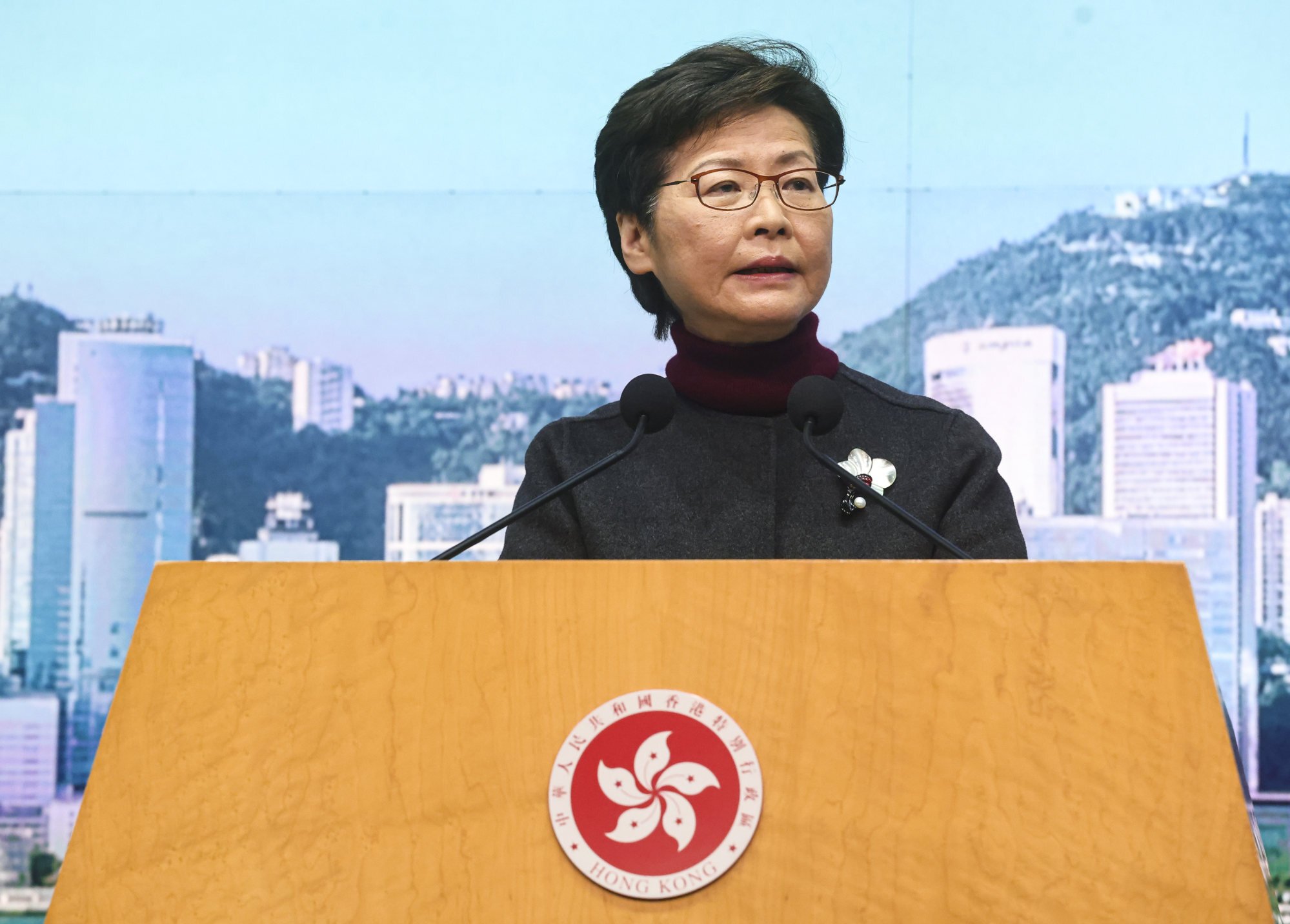
The government’s expanding vaccine pass system, requiring visitors at various venues to show proof of inoculation, will cover malls, department stores, supermarkets, wet markets and eateries.
However, the pass will not initially be extended to public transport, as was previously mooted, when it is launched on February 24 because of the difficulty of implementation and potential disruption to the flow of people.
The requirements for the pass will be steadily tightened in three stages, starting with needing a single jab initially, to two doses for adults and one for 12- to 17-year-olds by the end of April.
In the final stage from the end of June, all adults who have been inoculated with two shots for nine months will need to get a booster, while 12- to 17-year-olds will have to receive their second dose six months after the first.
Exemptions will be available in certain instances such as entering a shopping centre just to buy takeaway or retrieve belongings, to get tested or vaccinated, to attend government, legal or medical appointments, or to return home or get to work. But mall workers will not be exempted.
The last time Hong Kong imposed such strict limits on gatherings was back in July 2020.
Hair salons and religious venues will be closed temporarily, at least until the vaccine pass is launched, when the situation will be reviewed.
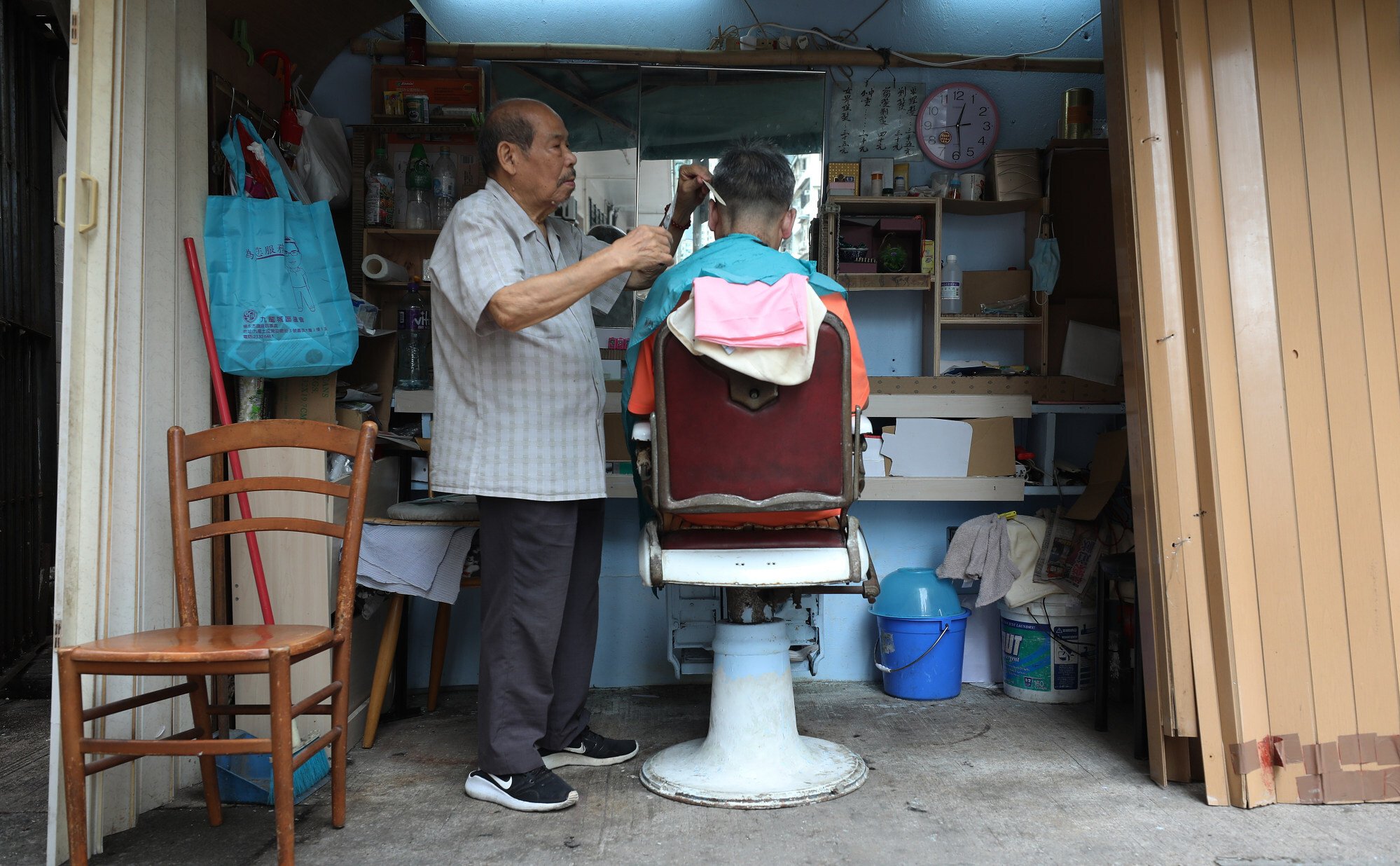
All restaurants except for so-called Type D ones will be limited to two diners per table. Type D restaurants – where all staff are fully vaccinated and patrons must have received at least one jab – will be capped at four people per table, instead of the current six.
Fixed penalties for failing to comply with mandatory testing orders will also be doubled, from the current HK$5,000 (US$640) to HK$10,000, Lam said.
Only 1 in 10 Hong Kong parents willing to let children get Covid-19 shot
To support people affected by the curbs, Lam announced a sixth round of anti-epidemic relief funding totalling HK$26 billion (US$3.3 billion) and said she hoped it would be approved by lawmakers at a Finance Committee meeting next Tuesday.
Residents in short-term unemployment will get a one-off HK$10,000 handout, while those on the pandemic front line such as cleaners, security guards and airport cargo workers will receive a monthly stipend of HK$2,000 for five months from February.
The new measures were approved on Tuesday by the Executive Council, Lam’s de facto cabinet.
Lam also revealed she had notified Exco of her plans to amend employment laws. After the changes, employees who are fired for not adhering to vaccine pass rules will not be treated as having been unfairly dismissed, while residents affected by lockdowns and quarantine orders will be able to apply for sick leave.
Hong Kong’s Covid-19 count stood at 16,647 confirmed infections, with 213 deaths. About 450 untraceable cases were recorded on Tuesday, reflecting the number of silent transmission chains in the community.
Earlier in the day, Lam said the city would stand by its “dynamic zero-infection strategy”, and defended the approach as essential to maintaining the public health system and preventing deaths.
She insisted the strategy was needed to “buy time” for people to get vaccinated, while also calling on members of the public to stay home and limit their activities.
She said Beijing had expressed its willingness to help Hong Kong maintain the dynamic zero-infection policy – the preferred method of containment in mainland China.
A mainland official and state media have warned the city in recent days against pivoting towards a strategy of “living with the virus”, as much of the world has.
The authorities revealed on Tuesday night that home quarantine orders had been issued to 38 people, comprising 19 close contacts and 19 household contacts of close contacts, involving a total of 17 households.
Citywide, 65 community and mobile testing stations have been set up. People ordered to undergo testing have complained about lengthy waiting times.
At least 40 testing stations with more capacity and space would be set up soon to help cut long lines.
“These stations will have more space and hopefully can facilitate the flow of people in line,” Chan, the permanent secretary said, adding that residents would be able to reserve a seat for them through the existing booking system.
The government also announced that, in light of the Omicron variant’s shorter incubation period, those living in high-risk neighbourhoods would only have to take two compulsory tests, rather than three.
Respiratory medicine expert Dr Leung Chi-chiu said tightening social-distancing rules would not bring case numbers down alone, but it would “create a sense of urgency” among the public.
Government pandemic adviser Professor David Hui Shu-cheong said including public transport in the vaccine pass might be needed if the epidemic was not brought under control.
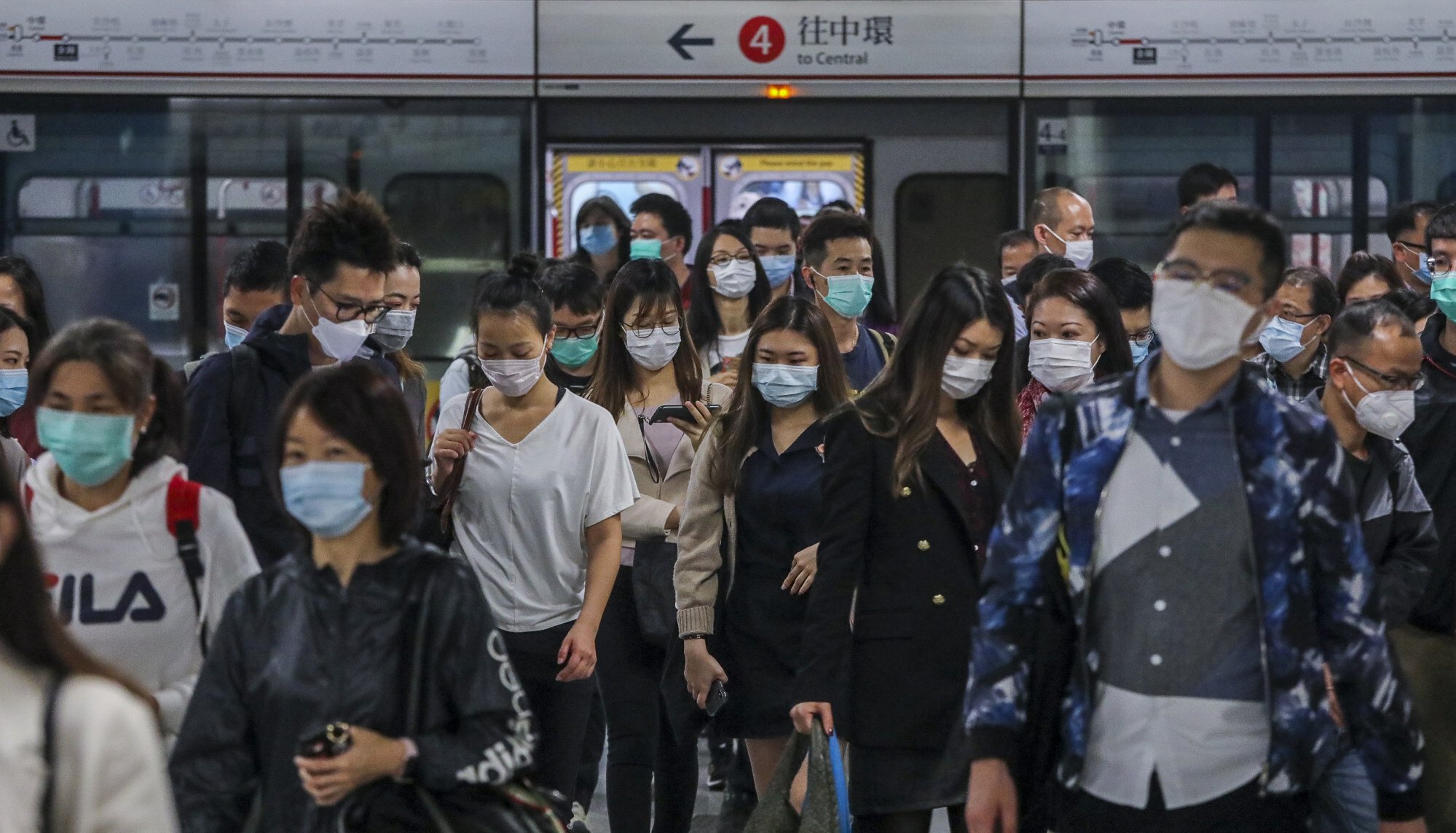
The Hospital Authority, meanwhile, said a 73-year-old male patient with chronic diseases who tested preliminary-positive for Covid-19 on Monday after being admitted to Caritas Medical Centre died on Tuesday.
He required resuscitation upon admission but his condition continued to deteriorate and he died in the morning, it said, adding the case would be referred to the coroner.
In a separate development, cargo pilots will be required to wear an electronic wristband with a tracking function during their home isolation, the Post has learned.
Currently, aircrew members must undergo medical surveillance after spending seven days in hotel quarantine.
Cathay’s ‘great resignation’ rolls on as pilots balk at Hong Kong Covid-19 rules
A source said cargo pilots would be required to wear the wristband during their medical surveillance period at home. The changes come into effect at midnight on Tuesday.
Hong Kong flagship carrier Cathay Pacific said it would continue to fully comply with all directives from the authorities as part of its pandemic response plan.
A Transport and Housing Bureau spokesman said quarantine requirements for aircrew were formulated with a risk‐based approach, taking into account public health considerations and the operational needs of the aviation industry.
Two former Cathay flight attendants were arrested last month for alleged violations of home isolation rules. The pair, believed to have been infected with the Omicron variant, allegedly interacted with others in public during the self-isolation period after returning from overseas.
At least four Cathay aircrew members have been found to have broken home isolation rules.
Additional reporting by Lilian Cheng, Gary Cheung and Kathleen Magramo



